The research and development complex (RDC) is being constructed under the guidance of Qatar Foundation (QF). QF is building a world-leading, fully integrated Research and Development (R&D) complex and unparalleled state-of-the-art research capabilities with centralized advanced imaging, characterization and analysis core capabilities housed under one roof offering support for QF’s research and development, processes and new products meanwhile enabling cutting edge research in areas of energy, water, environment and biomedical research. The in-house tools offer a wide range of instruments and applications to leverage the facility.
QF’s R&D complex is composed of 223,000 sqm research buildings spanning from integrated sciences, fundamental sciences, vivarium, translational and mesosciences buildings. The QF R&D integrated sciences building (Phase 1A) is one of many buildings in this newly established research campus to undergo construction. The first phase; the integrated sciences building (RDC 1A) is composed of 45,000 sqm housing research areas addressing Qatar’s Grand Challenges in energy and water security, and health care. In addition to serving QF R&D, the RDC complex is expected to serve the scientific community in Qatar at large.
QBRI is slated to occupy state-of-the-art life sciences laboratories fairly soon. The integrated sciences RDC 1A building is connected to the vivarium building facilitating access to animals and experimental work. The QBRI wing will house the 5 research centers. The QBRI facility is intended to support researchers in the areas of Diabetes, Cancer and Neurogenetics with Computational Biology and Genomics & Personalized Medicine cutting across the disease areas.
QBRI thematic core facility and technology platforms
The proximity of other institutes such as Qatar Energy and Environment Research Institute (QEERI) and Qatar Computing Research Institute (QCRI) is a research enabler. The presence of the institutes together enhances researchers interaction and cross-fertilization.
The following are examples of a few research cross-cutting areas between QEERI and QBRI:
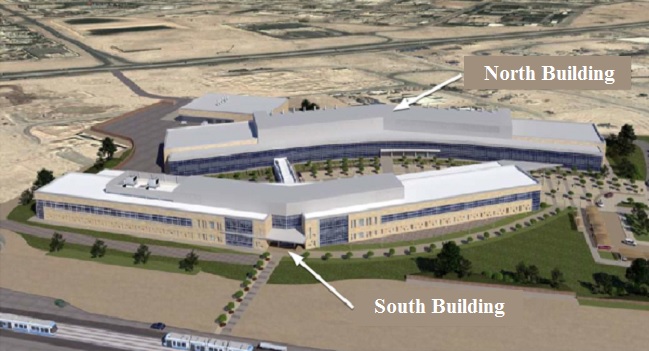
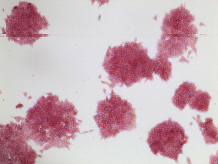
Stem cell research provides an opportunity to understand human development, to model specific diseases, and to develop new treatments. Pluripotent stem cells, including induced pluripotent stem cells (iPSCs) and embryonic stem cells (ESCs) hold great promise for generating patient- and disease-specific stem cell lines as well as cell-based therapies. The Stem Cell Platform functions as a multi-user shared research facility dedicated to support research involving iPSCs and ESCs. The main objective of this platform is to facilitate the development of basic and translational stem cell research by providing services and state-of-art equipment to researchers.
Neon Electroporation System
|
Biological Safety Cabinet
|
CO2 Incubator
|
TC20™ Automated Cell Counter
|
Cell Celector (AVISO)
|
The Qatar Biomedical Research Institute (QBRI) strives to become a centre of research and educational excellence. To this end, QBRI is committed to establish state-of-the-art core facilities and acquire technology platforms that will be equipped with cutting-edge technologies to meet the needs of in-depth study of complex biological systems.
The Qatar Biomedical Research Institute's new wing in the R&D complex will offer specialized core facilities and platform technologies with trained staff whose prime function is to conduct and support high-quality state-of-the-art biomedical research within QBRI and other institutions in Qatar.
QBRI will establish and house 6 core facilities that will provide cutting-edge research resources and services, enabling cutting-edge research projects and facilitating advancement in diagnosing and treatment of human diseases. A significant portion of QBRI new wing labs advanced equipment is under order and a limited number has been delivered to its current, temporary laboratory facility. Additionally, a set of high-end instruments are under consideration for acquisition to complement and maintain technological capabilities.
These technology platforms and core facilities are instrumental for the Research and Development activities within our research community through the support of applications for external research funding and project consultation in collaborative relationships. As the health and research needs of the Qatari society and biomedical research community evolve over time, the cores and facilities will periodically evaluate the technology and resource needs of researchers in order to stimulate the growth of new scientific areas and development of novel technologies. In addition, the facilities will offer comprehensive training and fee-for-service technologies.
All facilities will be operated by dedicated personnel, and administered by Ph.D. science managers with extensive experience and proven track record in the area of development and/or application of the relevant technologies. QBRI also aims to work towards the Qatar national strategic goal of capacity building through competitive recruitment of young scientists and well-established faculty members. QBRI will stimulate career development of young international and local Qatari researchers.
This platform supports a wide range of cellular and molecular biology research and also serves as vector viral production facility containing all necessary biosafety measures.
A virtual tour of the Genomics and Biophysics facility can be seen here.
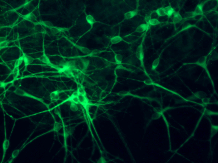 |
 |
Advanced Microscopy & ImagingThis core offers state-of-the-art equipment for microscopic imaging at cell and tissue level, including time-lapse fluorescent microscopy, laser microdissection and confocal microscopy. The core also facilitates access to other centralized QF R&D specialized imaging equipment such as scanning and transmission electron microscopes.
|
Flow CytometryThis core will provide instrumentation and expertise in quantitative, high-speed, and multi-parameter fluorescence analysis as well as single cell analysis and cell sorting. |
 |
 |
Genomics and Genome TechnologyThis core contains four units with high-end instrumentation for real time RT-PCR, Sanger sequencing, Genotyping and Molecular Karyotyping and Massively Parallel Sequencing. The facility also supports researchers with Next Generation Sequencing, high-throughput genotyping, digital PCR, gene expression, and single-cell genomics. |
Molecular Biology and Viral Vector Productionhis core supports a wide range of cellular and molecular biology research and also serves as vector viral production facility containing all necessary biosafety measures. |
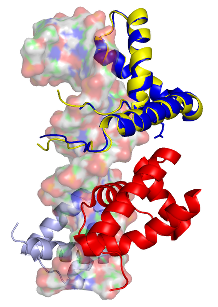 |
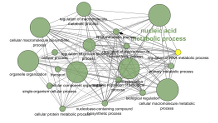 |
Protein Biophysics and Structural BiologyThis core will provide access to advanced equipment for the purification, identification and characterisation of proteins. Specialized technology will enable protein studies on structure and refolding, aggregation, and biomolecular and macromolecular interactions. |
Proteomics and Mass SpectrometryThis core will provide targeted and untargeted, quantitative proteomics analysis of various biological samples. In conjunction with the Protein Biophysics & XRD core, researchers will also be able to map interacting partners or interactome of a given target. |